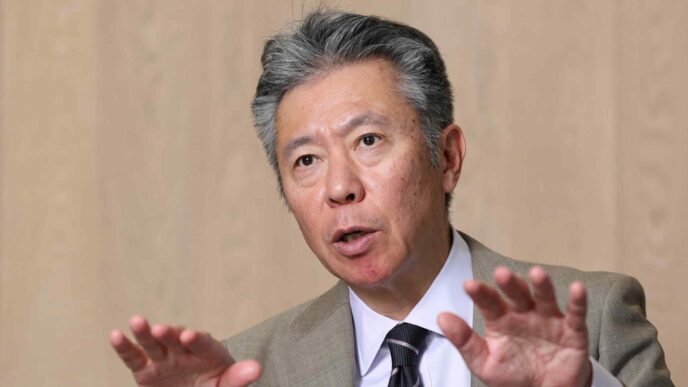TikTok has stopped allowing people to search for videos featuring the use of an artificial intelligence “chubby” filter after users criticized it as a form of body shaming.
Participants in the trend used an AI-driven tool, created by a user on the editing app CapCut, to alter themselves to look larger. CapCut and TikTok are both owned by the Chinese company ByteDance.
Using Doechii’s song “Anxiety” as the background music, participants in the trend would show unaltered versions of themselves before they applied the filter that transformed them into bigger bodies. Some of the videos have gotten millions of views. While some commenters said they found the trend funny, others said it perpetuates fatphobia and stigmatizes weight gain.
“There’s an amaaazing new trend on TikTok where skinny girls use a filter to become ‘chubby’ and laugh laugh at the results and everyone else laughs and it’s sooooooo funny and we definitely aren’t spiralling back down to pro ana death to fats era that damages every young woman,” an X user wrote in a post that got more than 2.9 million views.
A spokesperson for TikTok confirmed on Tuesday that the filter had been removed by CapCut. The platform is reviewing videos that have used the filter to make them ineligible for recommendation.
In its Community Guidelines, TikTok says it does “not allow showing or promoting disordered eating and dangerous weight loss behaviors, or facilitating the trade or marketing of weight loss or muscle gain products.”
The outcry over the “chubby” filter coincides with greater concerns from people online that society has moved away from body positivity, a movement centered on self-acceptance regardless of body type.
Over the years, other weight-loss-related TikTok trends — including one in which people posted pretend “before and after” weight loss photos and another in which people used the “bloated” filter — have generated similar negative responses. Other filters that modify people’s faces or bodies have also sparked debate over how they could contribute to body dysphoria or self-esteem problems.
In the past year, influencers who are known for championing body positivity have noticed an alarming return to “thinness” as the norm. In its 2025 spring/summer size inclusivity report, Vogue Business wrote that “progress has stalled and we are facing a worrying return to using extremely thin models, amid the Ozempic boom,” referring to using the popular drug semaglutide for weight loss.













